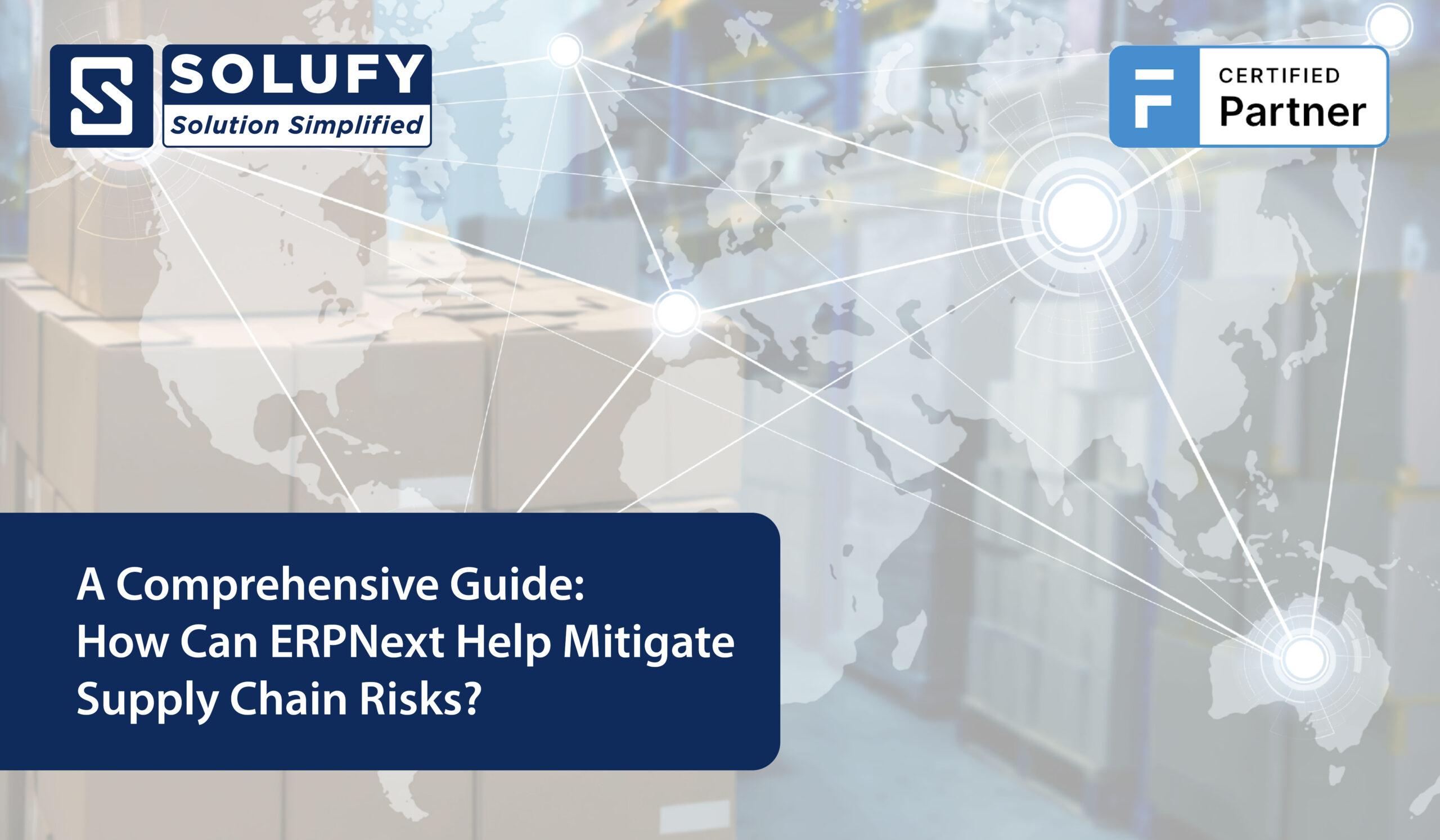In recent years there has been tremendous pressure on supply chains due to global shutdowns, international conflicts & severe weather. Today’s customers expect reliable delivery of high quality products, making efficient & cost-effective supply chain management essential for businesses. To meet these expectations, companies must first identify their biggest challenges, whether they involve customer satisfaction or vendor management. Business leaders can then explore key supply chain enterprise resource planning systems & strategies to overcome these obstacles.
Minimising supply chain risks is critical for any business, as disturbances can arise from factors such as natural disasters, supplier issues, or equipment malfunctions. Many companies in the industry use ERP systems to effectively manage such risks. Let’s explore how ERPNext helps manage supply chain risks.
Centralised Data:
ERPNext systems bring all your supply chain data to one place. This integration helps you see the clear picture, from raw materials to finished products. With centralized data, you can immediately identify potential issues and take action before they become major issues.
Improved Visibility:
With the ERPNext system, you have real-time visibility into your supply chain. This means you can monitor inventory levels, track shipments & see where delays might happen. By recognizing that, you can react more quickly to unexpected issues and reduce their impact on your business.
Improved Communication:
The ERPNext system improves communication between projects. When everyone has access to similar information, it is easier to coordinate efforts & make informed decisions. This can prevent conflict & ensure that everyone is working towards similar goals.
Predictive Research:
Modern ERPNext systems come with predictive analytics tools. These tools analyze historical data & predict future trends. For example, if a particular vendor has a history of delays, the ERP system can alert you to find alternative sources before they are too late.
Automation of Process:
The ERPNext system automates many manual tasks, reducing the possibility of human error. Automation can streamline tasks like order processing, inventory management, and production scheduling. This not only saves time, but also makes it more consistent & accurate.
Risk Management Plans:
With the ERPNext framework, you can develop and implement risk management. These policies can be strategies to prevent supply chain disruptions. Having a plan will allow you to respond quickly and effectively when issues arise.
Compliance:
ERPNext helps ensure system compliance with industry regulations and standards. All processes can be tracked and registered, making it easier to meet regulatory requirements. Compliance reduces the risk of fines and other penalties that could damage your supply chain.
3 Levels for Supply Chain Management
SCM is a difficult process that involves the coordination & integration of activities to ensure the efficient and effective delivery of goods & services to customers. There are 3 different levels of supply chain management which are listed below.
Strategic SCM :
Strategic supply chain management requires long-term planning & decision making. Which helps focus on developing & implementing strategies that enable the organization to achieve competitive advantage & business success. This operational level includes value setting, supplier selection, strategic distribution communications, & development partnerships with suppliers and customers to enhance value creation & delivery the overall performance has improved.
Tactical SCM :
Strategic supply chain management involves central planning & decision-making. It focuses on the implementation of the strategies & policies developed in the strategic phase. This level of management involves making decisions related to production planning, inventory management, demand forecasting, & supervisory relationships related to the supply chain. In addition, strategic supply chain management focuses on optimising transportation routes & ensuring compliance.
Operational SCM :
Business supply chain management involves short-term planning and decision-making. It focuses on the day-to-day operations that ensure the efficiency of the supply chain. This role level includes managing inventory, coordinating production, coordinating logistics of goods & services, and managing relationships with customers & suppliers to ensure delivery timely and high quality work.
The future of ERP in supply chain management
ERP systems in supply chain management will improve significantly in the future. Cloud-based ERP systems will become more popular as they are scalable, flexible, cost-effective, allowing real-time access & easy collaboration. It will be connected to the internet to provide real-time data, improve demand forecasting & automate inventory management.
AI and Machine Learning will help ERP systems analyze more data, resulting in better decision making and better planning. Blockchain technology will enhance data integrity & transparency, reducing fraud risk. Edge computing allows for rapid data analysis, especially for remote operations. In addition, the ERP system will interact more closely with other business functions, focusing on improvements, providing mobile access & prioritizing cybersecurity.
Conclusion
Implementing the ERPNext system is a powerful way to manage supply chain risks. It offers centralized data, high visibility, better connectivity, predictive analytics, automation, risk management and compliance support. By implementing these measures, companies can reduce the impact of supply chain disruptions and remain efficient.
You can Contact us for more information on how ERPNext can help you manage your supply chain risks.

